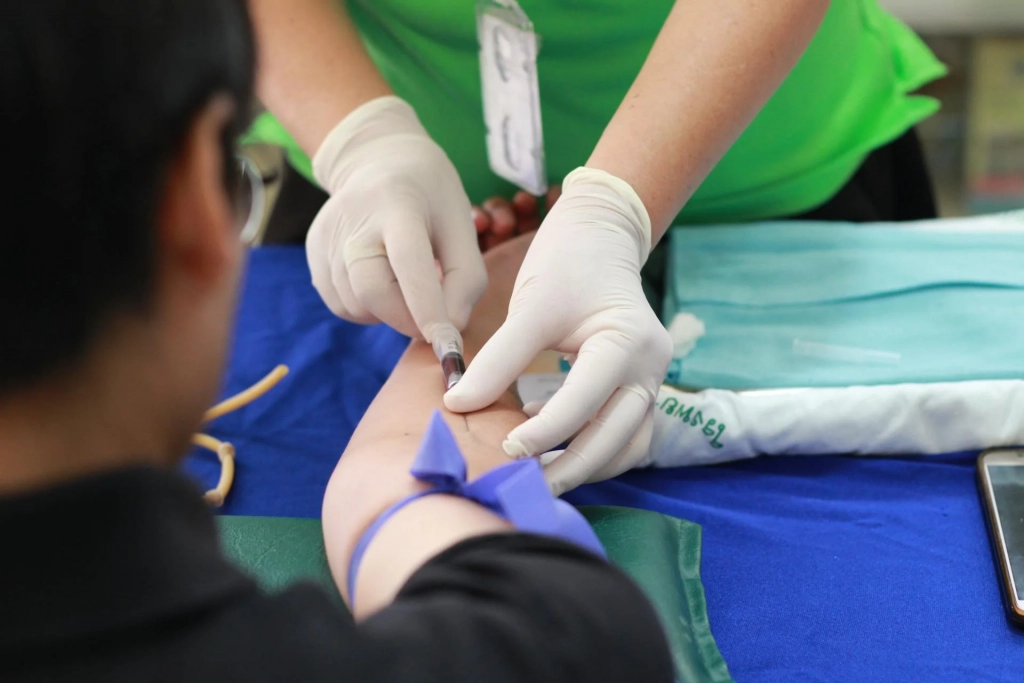Have you ever wondered what life would be like in Belgium? What would be your average daily expenses? Understanding the nuances of the cost of living in Belgium is probably the first thing you want to do if you want to enter the Belgian workforce with level-headedness and realistic expectations.
The average cost of living in Belgium is around 1,000 to €1,350 per month, but this estimate includes housing, utilities, clothing, medical & insurance costs, transport, leisure, groceries, and everything in between
Key Takeaways
- The average cost of living in Belgium for an average family is around €4,518 per month (with rent), but this will vary depending mostly on location.
- Health insurance costs will vary based on income and plan. However, self-employed may pay up to 20% of their income toward their insurance, and employed around 13%.
- In Belgium, primary and secondary education in public and subsidized schools is free, with some potential costs for extra materials and activities.
- A one bedroom apartment in the city center of Brussels costs around €1,200, while in Liège, the average rent won’t be more than €700.
- Monthly utilities cost around €238, monthly groceries average out to around €235, while a public transport pass costs around 49 euros a month.
Living Costs In Belgium: An Overview
Belgium offers a balance between Western European living standards and moderate prices, particularly compared to cities like Paris or Amsterdam. However, the cost of living in Belgium with rent included can still be steep in urban centers.
Typically, a family of four will spend (together with rent) over 4 thousand euros per month, while a single person may spend over a thousand, depending mostly on how much they have to put down for rent.
So, in most cases, the place you choose to nestle in will play a crucial role in determining your expenses, from average rent in Belgium, to daily food expenses, and more.
Housing & Utilities
Opting between a more quiet location near the countryside and a bustling city will play a significant role in determining the height of your expenses in Belgium. Just like in most countries, property prices have gone up, both in terms of rent and selling prices.
That said, let’s take a look at the average rental prices in the largest cities in the country, to get a better idea of these expenses.
| City | Average Rent, City Centre, One Bedroom |
| Brussels | €1,200 |
| Ghent | €920 |
| Antwerp | €890 |
| Liege | €700 |
Rent can be considered as relatively cheap, with Brussels being the most expensive place to live in Belgium, rent-wise. On a brighter note, if you plan on living in the capitol, finding a solid empty apartment may be easier than doing the same in Berlin or Amsterdam.
Rent Prices (Average)
| Studio Apartment | €800 – 900 (Brussels average range) |
| Apartment (1 bedroom) in City Centre | 838.41 € |
| Apartment (1 bedroom) Outside of Centre | 739.35 € |
| Apartment (3 bedrooms) in City Centre | 1,324.05 € |
| Apartment (3 bedrooms) Outside of Centre | 1,113.23 € |
| Shared Housing | €500 – 700 (City Centre) / €400 – 550 (Outside Centre) |

Source: Numbeo
However, you should also know that common rental contracts last for 9 years in the country, so getting familiar with tenant rights, and other obligations is necessary to avoid costly penalties if you choose to terminate your contract early.
Purchasing Property
We’ve covered the ins and outs of buying property in the Netherlands.While for Belgium, the legal side of things might be a bit different, you will still need to be prepared for significant investments.
More specifically, the median price for a semi-detached or attached house cost around 290,000 euros in the beginning of 2025, while the median price for a detached house was 395,000 euros, and an apartment cost around 249,000 euros
Utilities
Apart from the average rent in Belgium, prices you will also need to consider are utility costs. For example, the costs for a 85m² apartment typically range from €150 to €300, which fluctuates based on several factors, such as specific location, consumption habits, apartment/house size, and more. Phone plans and internet drive the costs higher, usually by about 70-80 euros.
Healthcare Expenses In Belgium
While healthcare isn’t entirely free in the country, it’s heavily subsidised through mandatory health insurance. This means that residents only have to pay a portion of the costs while the public system covers more than 70-75% of expenses.
More specifically, the average cost of health insurance varies based on the type of coverage and whether it’s private or public. Basic supplementary insurance is around €10 per month, while more comprehensive plans may reach €70 per month. On the other hand, employer-sponsored plans can cost between €15 to €20 per month.

Source: Pexels
All in all, the Belgian healthcare system aims to balance patient responsibility with public funding. It provides a high level of choice and access but individuals must also contribute to the cost of the care.
Education & Childcare
If you have kids, the cost of living in Belgium with rent isn’t the only thing you need to think about when assessing monthly expenses.
Education and childcare expenses greatly vary in the country depending on education level, type of care, and family income. More specifically, daycare and nursery costs are income-based, with high earners paying around €756, while low-income families pay around €136 per month. If you opt for private childcare, expect to pay between €28-€32 per day
Secondary and primary-level education is free, but parents need to pay for school supplies and additional extra costs that may arise. Some state that study materials may cost between €400 and €800 per year.
For higher education, some state that costs may ramp up to €7,000-€8,000 per year, with university tuition costing between €1,000–1,200/year for EU students, however, private universities may require you to pay €10,000–20,000 per year.
Food and Groceries
Budgeting in Belgium regarding groceries can be a bit easier, as you have plenty of options that offer a solid selection of essentials. Carrefour, Colruyt, Delhaize, Aldi, and Lidl offer great options for discounts. You can also opt for organic products (Bio-Planet), great finds at local markets, and even opt for delivery services.
| Milk (regular), (1 liter) | 1.12 € |
| Loaf of Fresh White Bread (500g) | 2.21 € |
| Rice (white), (1kg) | 2.10 € |
| Eggs (regular) (12) | 3.50 € |
| Local Cheese (1kg) | 12.91 € |
| Chicken Fillets (1kg) | 10.47 € |
| Beef Round (1kg) (or Equivalent Back Leg Red Meat) | 16.42 € |
| Apples (1kg) | 2.45 € |
| Banana (1kg) | 2.07 € |
| Oranges (1kg) | 2.25 € |
| Potato (1kg) | 2.00 € |
| Onion (1kg) | 1.64 € |
| Lettuce (1 head) | 1.32 € |
| Tomato (1kg) | 2.69 € |
| Water (1.5 liter bottle) | 0.90 € |
| Bottle of Wine (Mid-Range) | 7.00 € |
| Domestic Beer (0.5 liter bottle) | 1.66 € |
| Imported Beer (0.33 liter bottle) | 1.97 € |
| Cigarettes 20 Pack (Marlboro) | 11.00 € |

Source: Numbeo
Just like German food prices, groceries in Belgium are on the affordable side. According to Reddit sources, the average food costs for a single person varies between €250-€400, for couples €500-€800 and €800-€1200 for a family of four. For dining out, an average meal costs around €18, while a mid-range restaurant with a three course meal may set you back by €80.
If you want to keep your average daily food costs down, you can take the cheapest route and take a McDonald’s combo meal, and expect to pay €10. Water costs around €2.36, a bottle of Pepsi or Coke €2.70, while a bottle of domestic beer (0.5 liter draught) is around €4.
Still, typically, food prices in Belgium are acceptable, especially if you consider the wages people are getting paid.
Commuting Costs in Belgium
Generally speaking, public transportation is considered more cost effective than using your private vehicle, especially inside urban settlements. While public transport costs will vary based on mode (train, metro, bus) and whether you are buying a single ticket, monthly pass, or multi-journey passes, it can still be less expensive, especially in the case of frequent travel. On the other hand, private vehicle commutes are significantly higher, even employer contributions to commuting costs.
Here’s a more detailed breakdown of the two:
| Category | Details |
| Public Transportation | Typically range from €2.10 to €2.50 for local transport. |
| Single Tickets | Typically range from €2.10 to €2.50 for local transport. |
| Monthly Pass | .Range from €37.50 to €49, with potential discounts for students or zone-based pricing. |
| Employer Reimbursement | Many employers cover a significant portion of transport costs, often up to 75% or more |
| Third-Party Payer Scheme | Employers directly pay a portion of SNCB/NMBS train ticket costs, reducing the upfront payment for employees. |
| Private Vehicle Costs | |
| Fuel | Average price is €1.72 per liter, among the highest in Europe. |
| Insurance | Car insurance premiums vary by driver profile, location, and vehicle type—typically a major recurring cost. |
| Maintenance & Repairs | Regular servicing, tire changes, and unforeseen repairs contribute to a steady cost burden. |
| Parking | Especially in cities, parking can be limited and expensive, with monthly fees or pay-by-hour systems. |
| Taxes & Fees | Annual vehicle registration taxes, road taxes, and environmental levies apply and vary by region and vehicle type. |
You should also know that urban households usually pay less than rural households for transportation, mainly because of the better accessibility.
Leisure and Lifestyle Expenses in Belgium
With a rich cultural scene and a laid-back lifestyle, The country offers residents a myriad of leisure activities which come at specific costs that contribute to the overall cost of living in Belgium. These include:
- Gym memberships
- Concert tickets
- Dining out
- Shopping
- Entertainment activities
When planning your budget it’s important to consider the estimated monthly costs of living in Belgium, as these leisure activity expenses can vary depending on individual preferences and lifestyle choices.
| City | Restaurant Meal (Mid-Range) | Cinema Ticket | Gym Membership | Monthly Entertainment Budget (Estimated) |
| Brussels | €30 | €13 | €35 | €200 – €300 |
| Antwerp | €25 | €12 | €33 | €180 – €250 |
| Ghent | €22 | €12 | €32 | €150 – €220 |
| Leuven | €24 | €12 | €32 | €150 – €220 |
| Liège | €20 | €11 | €30 | €130 – €200 |
| Charleroi | €18 | €11 | €30 | €120 – €180 |
Gym Membership and Fitness Costs
Staying fit in the country is accessible and affordable, with several local gyms and national chains. Average gym memberships cost between €25 to €60 per month, with student discounts and flexible plans widely available.
Hobbies and Entertainment
Belgium is rich in nightlife, has an abundant art scene and lots of cultural activities. Belgium also has musical festivals that offer fantastic opportunities to experience local custom and social integration.

Source: Pexels
Hobbies such as sports clubs or creative classes typically cost around €30 to €50 per month
Income & Buying Power in Belgium
Understanding local wages and how far your salary can stretch is key to budgeting in Belgium. Fortunately, the country boasts strong income levels, especially compared to its relatively moderate living costs.
- Average net salary: As of 2024, Belgians earn an average of €2,428 per month after taxes, which gives plenty of room for comfortable living in most cities.
- Minimum wage (gross): As of May 2024, the gross minimum wage stands at €2,112 per month, which is one of the highest in the EU. This figure is also pretty decent to allow for a great living standard, even in the case of entry-level positions.
- Disposable income: After covering average monthly expenses of €1,565, a typical individual still retains a buffer of around €863 which again, is a healthy margin for savings, leisure, or emergencies.
When compared to neighbouring countries, the purchasing power of residents in Belgium is considerably strong, especially in the case of students, renters, and skilled, blue-collar workers.
Cost of Living In Belgium vs Netherlands
While both Belgium and the Netherlands offer high living standards, Belgium holds the edge when it comes to overall affordability, especially in two crucial segments, which is housing and childcare.
Overall living costs in Belgium are estimated to be lower than in the Netherlands, depending on the region and lifestyle.

Rent differences are especially striking with rent prices in the Netherlands being around 66% higher on average than in Belgium. More specifically, the overall cost of living in Brussels is around 27% cheaper than in Amsterdam.
While the Netherlands brings several advantages if you want to improve your quality of life, Belgium can provide better cost savings without compromise if you are looking to save up some money.
Is Belgium Affordable?
Belgium is a great combination of excellent public services, stellar healthcare, quality education, and affordability, making it a great destination both for individuals and families. A single person can live comfortably on €1,500 to €1,800/month (including rent and expenses), while a family of four can do the same with €4,000 to €4,500/month, depending on the region and lifestyle.
Whether you’re relocating for work, study, or a fresh start, Belgium remains one of Western Europe’s most budget-friendly choices for expats.
That said, if you are looking to relocate affordably then reach out to our team at Robin.jobs. We specialise in helping blue-collar workers across Europe find reliable jobs in Belgium, Germany, and the Netherlands with organized housing and transportation included. That means you’ll save time, reduce stress, and arrive fully supported.
Cost of Living in Belgium FAQs
What is the cost of living in Belgium for a single person?
Around €1,565 per month, based on average expenses in major cities, However, this can be lower, if you opt to nestle in a rural area.
How much does a family of four need?
Roughly €4,075 to €4,518 per month, depending on location and lifestyle.
Are groceries expensive in Belgium?
Typically, a person spends around 235/month, with meals out averaging €16–20. That’s said, you’ll have more than enough money left over from your daily/monthly essentials.
Is Belgium cheaper than the Netherlands?
Generally, Belgium is on average, cheaper by 25%, especially in terms of healthcare, childcare, and rent.

 English
English  Lietuvių
Lietuvių  Latviešu
Latviešu  Polski
Polski  Português
Português  Română
Română  Slovenčina
Slovenčina  Magyar
Magyar  Русский
Русский  Espanol
Espanol  България
България  Čeština
Čeština  Italy
Italy  Croatia
Croatia  Greek
Greek 

